Coronavirus – Long-Term Strategies For Brands

CORONAVIRUS – LONG-TERM STRATEGIES FOR BRANDS
The response from any Nigerians when asked if he or she foresaw the turn of event in the country, would probably be the same with other people from countries like Italy, Spain and USA where people did not initially understand that the deadly Corona virus could spread like wildfire or if they did understand, did not take preventive measures fast enough to curb the spread in the country.
If businesses had seen this impending challenge in the country, would they have mounted pressure on the government to ensure that the country is safe enough for their businesses or consumers?
There is no gainsaying that some, if not most businesses, were not ready and currently have lesser capacity to respond well to the pandemic which is gradually unfolding and worsening by the day in the country. With the Presidency declaring a 14-day lockdown, many companies had shut down or started telecommuting prior to the declaration, after which some companies are just starting the process of shutting down.
These are short-term responses to the crisis especially when the health experts agree that it is a wise and necessary decision made by the government. These responses will however cost people a great deal because there is still an outward rush of money from corporate funds as many brands continue to make payroll for workers who are presently working less.
The citizens are still not certain how long this pandemic will continue to disrupt flow of activities in the country but if it continues to spread at the current rate considering the rising number of confirmed cases by the Nigeria Centre for Disease Control, NCDC, it is likely that the country will go on a longer lockdown than expected.
Nobody knows how long this restrictive period will expand, but the uncertainty of the pandemic’s duration calls for questions on just how well companies are equipped to manage a long-term disruption to their business operations.
However, analysts and economic experts say changes in the long-term business picture will be just as critical as the immediate challenges brands are facing right now. The good news is that while expressly sorting out immediate issues, businesses can simultaneously work on the long-term business plan.
It’s Time To Address Technological Shortfalls
Douglas Laney, data and analytics principal at Caserta and the author of Infonomics, observed that a number of organizations are presently scrambling just to equip employees to work from home—including many who have never had to work remotely before. Some companies do not even have Laptops to take home to work as they are still in the desktop era. It might be very difficult to start setting up remote-office capabilities but it is high time companies planned for the future of their operations technology-wise because if you cannot sign a document, or get someone on a meeting through a conference facility, and cannot reach each other internally or do other important things with the help of the technology, it is going to be a disaster yet to happen for such a business. Many businesses would have gone far leaving yours behind to scramble for whatever business is left, that is if there is any.
E-commerce Won’t Save The Day, But It’s Crucial
Many people are going to rely on online shopping during this period for almost anything. If the situation worsens, people are likely to avoid physical stores and rather shop online. According to Coresight Research Data, over a quarter (28%) of US internet users are already avoiding public areas and 58% plan to if the situation worsens. However, this avoidance is trickling down into shopping: Three-quarters (74.6%) of US internet users said they would likely avoid shopping centers and malls if the coronavirus outbreak in the country worsens, and over half would avoid shops in general.
Here in Nigeria, most online shops in Lagos such as Jumia and Konga offering products other than pharmaceuticals and foodstuffs have devised measures to mitigate the effects the restriction of movement would have, by giving discounts, cashless mode of payment and offering the customers contactless as well as free delivery to ensure the safety of the people.
The banks located in the three states in Nigeria, Lagos, Abuja and Ogun are on lockdown, however, with so much work and commitment put in to their e-banking over the years, they can confidently tell their customers to #bankfromhome on their online banking app
Industry watchers suggest that if a brand hadn’t devoted major resources to ecommerce in the past, now is the time to do it. While many analysts have said ecommerce cannot replace all lost foot traffic (especially if consumers hit by curtailed or lost incomes have less money for shopping).
However, CBX Chief Engagement Officer Satoru Wakeshima says “Shopping schematics are something to consider, There’s going to be a [continued] surge in online shopping. And many brands may have only had 20% of their business [online], and suddenly that’s going to increase. If that increases, you need to think about your online marketing strategy. And beyond that, can your organizational infrastructure handle the online sales?”
An advisory Specialist at Gartner who pays attention to consumer trends in China, Amie Song says significant ecommerce brands gained traction during the pandemic period for brands right now “this is an interesting opportunity for a lot brands to think about their digital innovation.”
Today’s Marketing Will Not Work Tomorrow
This is not the time for brands to put out traditional advertising messages but for corporations to make headline-grabbing donations that would “keep their brands front and center” without the risk of traditional advertising messages that would invariably come off as crass.
A report from ADWEEK states that when Corona Virus was at its peak in China, luxe conglomerates LVMH Moët Hennessy—whose brand portfolio includes Fendi, Dior and Louis Vuitton—and the Kering labels (Gucci, Balenciaga and others) donated $2.3 million and $1.08 million, respectively, to the Chinese Red Cross to help pay for medical staff and public health education. Bringing it home, wealthy Nigerians and organizations, including banks, have also donated billions of Naira to help fund medical centers and provide essential materials necessary to curtail the spread of coronavirus in the country. The brands, setting aside that it is good for the country where over 72 percent of Nigerians still pay out of their healthcare, and majority of those affected are poor Nigerians who are unable to afford treatments, are practicing a form of marketing.
What Happens When No Strategy Helps?
A lecturer at microeconomics at NYU’s Stern School of Business, pointed out that “there are very smart men and women who are running your brand-name companies,” and that many of them are, no doubt, thinking about all of these long-term measures. But he also observed that, for some brands, there is likely no way to avoid the gut punch the pandemic will deliver.
The International Air Transport Association, IATA, said the disruption to air travel due to the continued spread of coronavirus will cost Nigeria’s aviation industry over N160.58bn (using Bureau de Change rate of N370 to $1) ($434m) in revenue and 22,200 jobs. The association, an umbrella body for 290 airlines globally, had in early March projected 853,000 losses in passenger volumes and $170m loss in base revenues in Nigeria if the spread of COVID-19 virus continued.
It is however, possible to recover a lot when the spread subsides, as a lot of business-minded Nigerians are stuck in other parts of the world, also many organizations will need to fly, well except if they get much eye opener on the benefits of conference calls rather than flying to see the clients which will save them huge costs.
The Supply Chain Challenge And The Good News
Many brands are dependent on Chinese manufacturing, there is need for organization to have a rethink and strategies their supply chain for long term purpose.
According to Advisory Specialist, Amie Song, the long-term implications of the outbreak may offer little encouragement, looking at what is happening now in China, there is evidence of recovery and when it comes, might well be a strong one.
“People are very confident [now] and they feel like the virus is contained in China,” Song said. “And now, they’re having renewed shopping behavior.”
Hence, there seems to be more light emerging at the end of the tunnel as China is gradually coming out of the pandemic crisis and businesses seem to be turning on gradually.
Written By Mojisola Idowu with Additional material from ADWEEK, EMARKETER
NIGERIAN PUBLICATIONS






